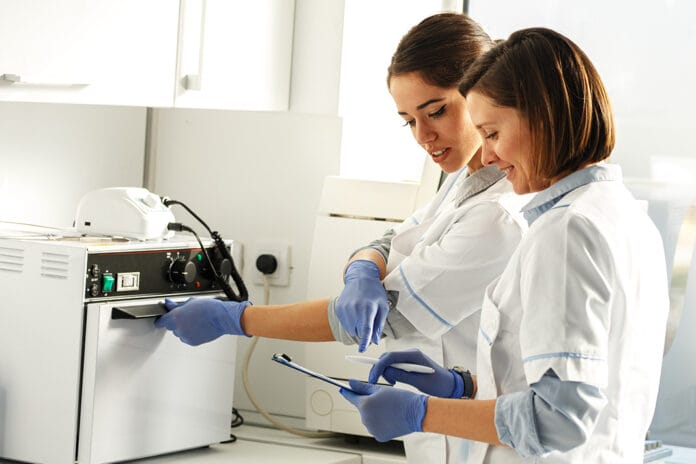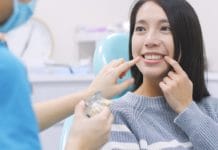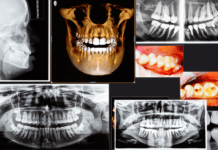While mentoring has always been a valued concept, mentoring within the dental field in recent years has become the key differentiating factor for clinical success, teamwork, and employment longevity. Mentoring is defined as “a relationship between two people with the goal of professional and personal growth.”1
An article in the Clinical Teacher states, “The importance of mentorship within health care training is well recognized. It offers a means to further enhance workforce performance and engagement, promote learning opportunities and encourage multidisciplinary collaboration. There are both career and life benefits associated with mentorship, and it is increasingly recognized as a bidirectional process that benefits both mentors and mentees. Recently, mentoring has been considered an essential step in professional and personal development, particularly in the field of health care.”2
Trusted mentoring relationships within the dental profession can be the bridge between graduating from a dental hygiene program and the faster pace of a revenue-based dental practice. Or the relationships serve as a liaison to the practice and the production requirements associated with a multi-location/multi-practitioner dental practice for a dental hygienist being newly hired in a large group or corporate practice.
A mentorship program can provide an outstanding work culture for a newly hired dental hygienist, empowering them while being supported by a mentor. While many tenured hygienists have provided leadership, tips, and guidance to newly hired graduates or newly hired employees, a true mentorship program employs a seasoned professional to provide direction and care without having the limitations of also delivering clinical care.
Developing Mentoring Plan
Once hired by the national corporation where I work, I was tasked with developing a mentoring plan that would:
- Ensure clinician success
- Provide for a smooth transition into the practice
- Provide a platform for asking questions, voicing concerns
- Provide emotional support and encouragement
- Provide “practice keys” to ensure benchmark production is achieved
- Provide motivation for career longevity
In order to achieve these objectives when developing each personalized mentoring plan for the new hires within my corporation, I pull from my 30-plus years of hygiene proficiencies to implement a mentoring template. This template addresses the six key areas of clinical excellence listed below.
During all mentoring sessions, in addition to my professional experience, I also utilize strong leadership and effective communication skills in order to convey my experiences and knowledge to the mentee. These mentoring sessions provide for important practice philosophies inherent to our corporation.
It is my hope that through my mentorship, the transition from student to provider, as well as any new hires, can help to sustain a successful, happy hygienist ‒ a hygienist who feels appreciated and valued. I love spending time with other dental professionals, listening to their concerns such as time management, dealing with office conflict, and the transition from a school environment to the much faster clinical pace of the real world.
These types of discussions can provide a mentor with the opportunity to offer support for an atmosphere for growth and positive change. While mentoring, I have observed that when dental hygienists feel supported, the advancement of the quality of care provided to each patient is observed, burnout is less evident, and definitive patient care remains the focus.
When sharing my keys for success with dental hygienists all over the country, I repeat the same words: Every day, every appointment, every patient, every time. This includes the instruction to chart prep at the beginning of each day to determine the greatest avenue for providing not only a standard of care but also a roadmap for personal accomplishment and achievement. This includes the following six areas of patient dental health:
- Medical needs/blood pressure
- Restorative needs
- Periodontal needs
- Cosmetic needs
- Orthodontic needs
- Preventive needs
Every Day. Chart prep to be prepared. Does the patient need radiographs? FMX? BWX? PAN? Would this patient benefit from a fluoride treatment? Has local anesthesia been used in the past?
Every appointment. Update medical histories and medication history, take blood pressure, obtain needed radiographs, perform periodontal assessment, personalized OHI, document with detailed chart notes.
Every patient. Regardless of time constraints, every patient deserves the standard of care given to every other patient seen. No shortcuts. Make determinations about the patients’ needs beyond the prophylactic appointment. Does the patient have restorative needs? Periodontal needs beyond a maintenance appointment? Cosmetic needs? Orthodontic needs? And determine the patient’s recommended recall.
Every Time. Every patient is different, and to be successful, it is necessary to utilize critical thinking skills to implement an individualized strategy to obtain a definitive patient care plan.
The utilization of a chart prep combined with the aforementioned dialogue will provide the dental hygiene provider with an indication of the patients’ needs in order to obtain clinical excellence. Employing an overall dental/medical synergy mindset and overall dental health attitude beyond the dental hygiene operatory ensures that the patients have a consummate dental experience.
A Developmental Relationship
It is never a single-focused approach. Mentoring is different from when consultants or individuals who have expertise in a field are contacted for professional advice to sort out specific issues an organization faces. Consultants typically work within systems in an organization to find answers and/or solutions to problems encountered.
A mentor is a person who is well-experienced in a field and guides/assists a mentee who is less experienced to grow professionally and personally. A mentor will offer support and encouragement and helps the mentee to achieve their goals in various ways.
A mentor may act as a teacher by showing a mentee how something should or should not be done and giving advice, suggestions, or feedback on what they need to do to succeed and develop to achieve goals. A mentor also acts as a guide by sharing their professional experiences and knowledge. In short, a mentor/mentee is in a developmental relationship.
When implementing a mentoring technique, clinical excellence and clinician success are at the forefront of the conversation between the mentor and mentee. This conversation leads the hygienist to understand that the utilization of the mentoring template will lead to successes beyond patient satisfaction to those of revenue production. When addressing each area of need, the issue of production or revenue produced in our chairs is never a concern for the dental hygiene clinician or her supervising dentist.
The application of the clinical excellence template is sufficient to drive the numbers and reach the stated goals for each provider. When a mentee is following the guidelines set forth by the applied mentoring plan, there is less evidence of the struggle for the mentored provider to obtain their target for production. Not only are we becoming valued employees, but we are also building trusting relationships with our dental team members as well as our patients. This is what I like to call “hygiene from the heart.” My mentoring focus is built on this concept: Being a leader/listener and looking at dental hygienists as the heartbeat of all dental practices.
As the corporate world of dentistry embraces the concept of hygiene mentoring, it could be an initiative to foster the same type of mentorship practiced in smaller, private practices. The successes noted by the mentoring process could be the driving force to implement the application and utilization of this process to influence and shape the careers of all dental professionals.
Mentoring is an extremely rewarding experience and involves “both a coaching and an educational role, requiring a generosity of time, empathy, a willingness to share knowledge and skills, and an enthusiasm for teaching and the success of others.”2 Spending our time and energy to truly make a difference in someone’s life is an amazing experience. Mentoring is a relational process involving life-to-life exchanges to help others discover and pursue their passions and purpose. It also provides a nurturing guide for better patient care in the dental world. I like to think of it as a very humble way to invest in another person’s life. We start with the principal values of our code of ethics and then challenge ourselves and others to really apply them to our daily practice with our patients and in our own personal lives.
Mentors want their mentees to succeed in all areas of life. It is my hope that through this mentoring process, mentees will learn to push toward their goals and learn to ask for feedback when needed. My personal experiences of nurturing, inspiring, and leading young professionals have led me to the realization that the practice of dental hygiene really does expand outside the op. Dental hygiene is a career with limitless possibilities and an opportunity to help make our world a healthier place.
Now Check Out the Peer-Reviewed, Self-Study CE Courses from Today’s RDH!
Listen to the Today’s RDH Dental Hygiene Podcast Below:
References
- Mentoring. (n.d.). Mind Tools. https://www.mindtools.com/pages/article/newCDV_72.htm#
- Burgess, A., van Diggele, C., Mellis, C. Mentorship in the health professions: A review. Clin Teach. 2018; 15(3): 197-202. https://pubmed.ncbi.nlm.nih.gov/29318730/












